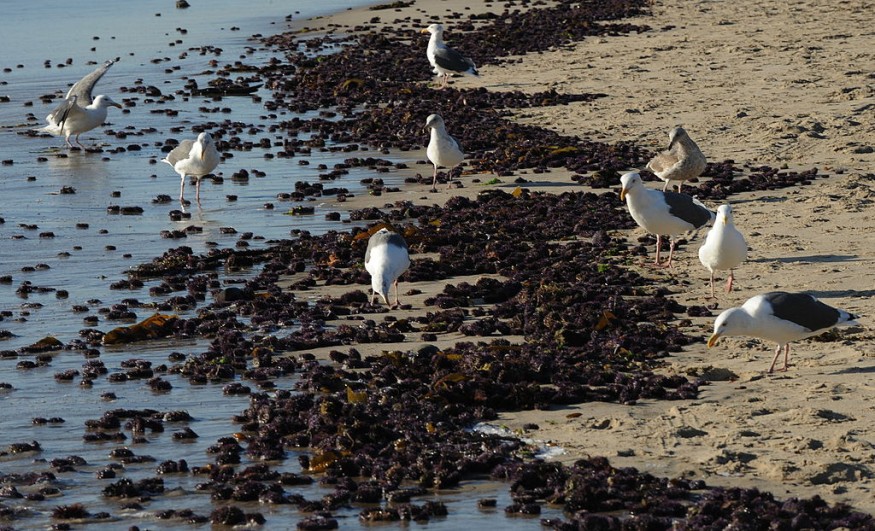The latest report showed climate change's impact on sea urchins' population. With heavy rainfall, the difference in salinity of water levels can harm their population.
Studies and reports highlighted the effect of climate change on animals and biodiversity. The rising global heat or temperatures can harm many sensitive environments, bringing the threat of wildfires and drought.
On the other hand, climate change can also drive extreme weather events.
According to the United States Environmental Protection Agency (EPA) website, dangerous weather could occur more frequently due to worsening human-induced climate change.
Marine ecosystems and animals likely suffer more, especially the coral reef systems.
Extreme weather events impact the sea urchin population

Heavy rainfall could be a factor in altering the salt, where sea urchins thrive, according to the report published in Phys.org.
The study's author, Austin Garner, noted that the freshwater going to nearshore ecosystems could likely alter habitats that harm the sea urchins.
Garner is also an assistant professor and part of Syracuse University's BioInspired Institute.
The report highlighted the changing salinity in water levels that can cause the death of sea urchins in the affected areas.
The study was also published in the Journal of Experimental Biology. Researchers noted that sea urchins are considered intolerant and sensitive to salinity fluctuations.
Furthermore, the study explained that climate change could help unleash frequent extreme weather events, adding that species can become vulnerable to possible threats.
As a result, the survival of sea urchins is vital to marine ecosystems. The report said that the said species are natural ecosystem engineers.
Sea urchins are essential to coral reef system growth.
The sea urchins were separated into ten groups to observe the study further in each tank with different salinity levels. The researchers discovered that the low salinity could affect the sea urchins.
Extreme heat impact on Florida's coral reef system
Recently, Nature World News (NWN) and Associated Press (AP) reported that the extreme temperatures impacted some coral reefs in Florida's coastal areas.
The waters in Manatee Bay near the South of Miami recently recorded a whopping 101.19 ocean temperatures.
According to The Guardian's report, the temperature could become a world record.
Experts noted that some coral reefs suffered from heat stress and coral bleaching on the Florida coast. In the AP report, high temperatures on the coast caused corals to look pale or white.
Did you know? Red Sea Urchin in Southern California
Previously, NWN and a study published in Science Advances also reported that ocean acidification and climate change affected the Red Sea Urchin in Southern California.
The report added that the red sea urchins in the area are sensitive to changing temperatures and warming. The study noted that some managed to adapt to warmer events, but survival would still be challenging.
Related Article : Red Sea Urchin in Southern California Could Suffer from Climate Change, New Report Finds
For more similar stories, don't forget to follow Nature World News.
© 2026 NatureWorldNews.com All rights reserved. Do not reproduce without permission.





